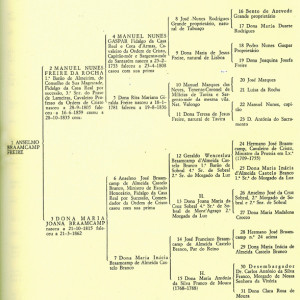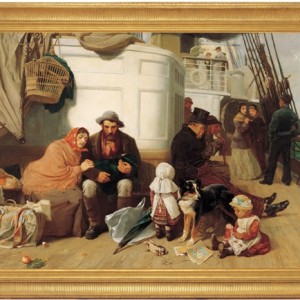Today is the Solemnity of the Assumption of the Blessed Virgin Mary, one of the most important feasts of the year. Here are some facts of about today’s feast that you may not know: José Benlliure y Gil, Mass in the Chapel (1871) 1. Today is a Holy Day of Obligation: Outside of Sundays, American Catholics… Continue reading Ten Facts About the Assumption of Mary That You May Not Know
Tag: apologetics
How Train Cars and Set Theory Prove the Existence of God
Perhaps the strongest argument against atheism is the argument from contingency. In its barest form, it goes something like this: A. All of reality, without exception, breaks down into one of two possible categories: (1) that which is contingent, and (2) that which is non-contingent. Let me explain what I mean by both the terms,… Continue reading How Train Cars and Set Theory Prove the Existence of God
The Single Best Argument Against Philosophical Materialism?
Robert Ritchie, commenting on Wednesday’s post refuting philosophical materialism, raised another important line of argumentation: that we can see that philosophical materialism is false because of “the reliability of our cognitive functions.” Ritchie described the argument as “exceedingly powerful,” and “for my money, is the best single argument against materialism.” I’ll let you be the judge… Continue reading The Single Best Argument Against Philosophical Materialism?
Does the Immaterial Exist?
One of the most common arguments from atheists is that matter is all that there is, and that the immaterial (God, angels, the human soul, etc.) simply doesn’t exist. This position is generally called “philosophical materialism,” although that term encompasses a number of distinct positions. In any case, here’s one of the clearest presentations of… Continue reading Does the Immaterial Exist?
The First- and Second-Century Papacy: An Answer to Eamon Duffy
One of the most surprising attacks on the papacy has come from Eamon Duffy, a professor of the history of Christianity at Cambridge University. Duffy’s argument is that not only was the Bishop of Rome not considered the pope in the early days of Christianity, but that there was no Bishop of Rome for nearly… Continue reading The First- and Second-Century Papacy: An Answer to Eamon Duffy
Have You Wept Over the Death of Immigrants?
Last week, Pope Francis visited the small Sicilian island of Lampedusa, a crossing-over point for immigrantscoming from northern Africa to Europe. He went to mourn the deaths of an estimated 20,000 migrants who have crossed over. These individuals were mostly Muslims who were crossing into Europe illegally, and their deaths were largely ignored. The pope’s trip… Continue reading Have You Wept Over the Death of Immigrants?
Why Non-Christians Should Read Lumen Fidei
On Friday, Pope Francis released his first encyclical, Lumen Fidei, which means “The Light of Faith.” Even though the encyclical is addressed to “the bishops, priests, and deacons, consecrated persons, and the lay faithful,” I hope that non-Christians will read it as well. Why? Because Francis explains in stark terms the differences in how “faith”… Continue reading Why Non-Christians Should Read Lumen Fidei
“Once Saved, Always Saved” and Three Cups of Tea: Cup 3
This is the third (and final) part of a three-part guest post by David Bates of the blog Restless Pilgrim, on the topic of the doctrine of eternal security, better known as “Once Saved, Always Saved”: In the last two blog posts I critiqued the Scripture interpretations of Mack, a commentator on my Once Saved, Always Saved post. Mack had responded… Continue reading “Once Saved, Always Saved” and Three Cups of Tea: Cup 3
“Once Saved, Always Saved” and Three Cups of Tea: Cup 2
This is the second part of a three-part guest post by David Bates of the blog Restless Pilgrim, on the topic of the doctrine of eternal security, better known as “Once Saved, Always Saved”: In the last post I began to examine the responses of Mack, a recent commentator on my Once Saved, Always Saved post who offered some… Continue reading “Once Saved, Always Saved” and Three Cups of Tea: Cup 2
“Once Saved, Always Saved” and Three Cups of Tea: Cup 1
David Bates David Bates, on his blog Restless Pilgrim, has written a three-part analysis of “Once Saved, Always Saved,” the Protestant notion that “the elect” can never lose their salvation. He gave me permission to cross-post here. (By the way, if you’re wondering about all the references to tea, he is a Brit living in… Continue reading “Once Saved, Always Saved” and Three Cups of Tea: Cup 1








